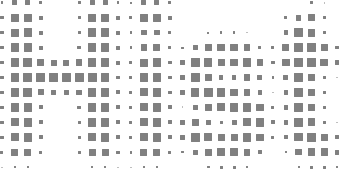hist package#
- class hist.BaseHist(*in_args: AxisTypes | Storage | str, storage: Storage | str | None = None, metadata: Any = None, data: np.typing.NDArray[Any] | None = None, label: str | None = None, name: str | None = None)#
Bases:
Histogram- property T: Self#
- density() np.typing.NDArray[Any]#
Density NumPy array.
- fill(*args: Any, weight: Any | None = None, sample: Any | None = None, threads: int | None = None, **kwargs: Any) Self#
Insert data into the histogram using names and indices, return a Hist object.
- fill_flattened(*args: Any, weight: Any | None = None, sample: Any | None = None, threads: int | None = None, **kwargs: Any) Self#
- classmethod from_columns(data: Mapping[str, Any], axes: Sequence[str | AxisProtocol], *, weight: str | None = None, storage: Storage = Double()) Self#
- integrate(name: int | str, i_or_list: InnerIndexing | list[str | int] | None = None, j: InnerIndexing | None = None) Self | float | bh.accumulators.Accumulator#
- plot(*args: Any, overlay: str | None = None, **kwargs: Any) Hist1DArtists | Hist2DArtists#
Plot method for BaseHist object.
- plot1d(*, ax: matplotlib.axes.Axes | None = None, overlay: str | int | None = None, **kwargs: Any) Hist1DArtists#
Plot1d method for BaseHist object.
- plot2d(*, ax: matplotlib.axes.Axes | None = None, **kwargs: Any) Hist2DArtists#
Plot2d method for BaseHist object.
- plot2d_full(*, ax_dict: dict[str, matplotlib.axes.Axes] | None = None, **kwargs: Any) tuple[Hist2DArtists, Hist1DArtists, Hist1DArtists]#
Plot2d_full method for BaseHist object.
Pass a dict of axes to
ax_dict, otherwise, the current figure will be used.
- plot_pie(*, ax: matplotlib.axes.Axes | None = None, **kwargs: Any) Any#
- plot_pull(func: Callable[[np.typing.NDArray[Any]], np.typing.NDArray[Any]] | str, *, ax_dict: dict[str, matplotlib.axes.Axes] | None = None, **kwargs: Any) tuple[FitResultArtists, RatiolikeArtists]#
plot_pullmethod forBaseHistobject.Return a tuple of artists following a structure of
(main_ax_artists, subplot_ax_artists)
- plot_ratio(other: hist.BaseHist | Callable[[np.typing.NDArray[Any]], np.typing.NDArray[Any]] | str, *, ax_dict: dict[str, matplotlib.axes.Axes] | None = None, **kwargs: Any) tuple[MainAxisArtists, RatiolikeArtists]#
plot_ratiomethod forBaseHistobject.Return a tuple of artists following a structure of
(main_ax_artists, subplot_ax_artists)
- profile(axis: int | str) Self#
Returns a profile (Mean/WeightedMean) histogram from a normal histogram with N-1 axes. The axis given is profiled over and removed from the final histogram.
- project(*args: int | str) Self | float | Any#
Projection of axis idx.
- show(**kwargs: Any) Any#
Pretty print histograms to the console.
- sort(axis: int | str, key: Callable[[int], SupportsLessThan] | Callable[[str], SupportsLessThan] | None = None, reverse: bool = False) Self#
Sort a categorical axis.
- sum(flow: bool = False) float | Any#
Compute the sum over the histogram bins (optionally including the flow bins).
- class hist.Hist(*in_args: AxisTypes | Storage | str, storage: Storage | str | None = None, metadata: Any = None, data: np.typing.NDArray[Any] | None = None, label: str | None = None, name: str | None = None)#
Bases:
BaseHist
- class hist.NamedHist(*args: Any, **kwargs: Any)#
Bases:
BaseHist- fill(weight: Any | None = None, sample: Any | None = None, threads: int | None = None, **kwargs: Any) Self#
Insert data into the histogram using names and return a NamedHist object. NamedHist could only be filled by names.
- fill_flattened(obj: Any | None = None, *, weight: Any | None = None, sample: Any | None = None, threads: int | None = None, **kwargs: Any) Self#
- project(*args: int | str) Self | float | Any#
Projection of axis idx.
- class hist.Stack(*args: BaseHist)#
Bases:
object- property axes: NamedAxesTuple#
- classmethod from_dict(d: Mapping[str, BaseHist]) Self#
Create a Stack from a dictionary of histograms. The keys of the dictionary are used as names.
- classmethod from_iter(iterable: Iterable[BaseHist]) Self#
Create a Stack from an iterable of histograms.
- plot(*, ax: mpl.axes.Axes | None = None, **kwargs: Any) Any#
Plot method for Stack object.
- project(*args: int | str) Self#
Project the Stack onto a new axes.
- show(**kwargs: object) Any#
Pretty print the stacked histograms to the console.
- hist.sum(iterable, /, start=0)#
Return the sum of a ‘start’ value (default: 0) plus an iterable of numbers
When the iterable is empty, return the start value. This function is intended specifically for use with numeric values and may reject non-numeric types.
Subpackages#
Submodules#
- hist.accumulators module
- hist.axestuple module
- hist.basehist module
BaseHistBaseHist.TBaseHist.density()BaseHist.fill()BaseHist.fill_flattened()BaseHist.from_columns()BaseHist.integrate()BaseHist.plot()BaseHist.plot1d()BaseHist.plot2d()BaseHist.plot2d_full()BaseHist.plot_pie()BaseHist.plot_pull()BaseHist.plot_ratio()BaseHist.profile()BaseHist.project()BaseHist.show()BaseHist.sort()BaseHist.stack()BaseHist.sum()
SupportsLessThanprocess_mistaken_quick_construct()
- hist.classichist module
- hist.hist module
- hist.intervals module
- hist.namedhist module
- hist.numpy module
- hist.plot module
- hist.quick_construct module
ConstructProxyMetaConstructorQuickConstructQuickConstruct.Bool()QuickConstruct.Boolean()QuickConstruct.Func()QuickConstruct.Int()QuickConstruct.IntCat()QuickConstruct.IntCategory()QuickConstruct.Integer()QuickConstruct.Log()QuickConstruct.Pow()QuickConstruct.Reg()QuickConstruct.Regular()QuickConstruct.Sqrt()QuickConstruct.StrCat()QuickConstruct.StrCategory()QuickConstruct.Var()QuickConstruct.Variable()QuickConstruct.axesQuickConstruct.hist_class
- hist.stack module
- hist.storage module
- hist.svgplots module
- hist.svgutils module
- hist.tag module
- hist.version module
